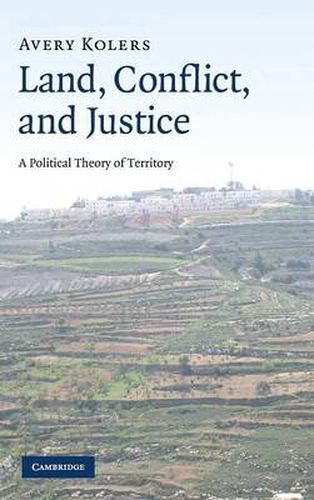Readings Newsletter
Become a Readings Member to make your shopping experience even easier.
Sign in or sign up for free!
You’re not far away from qualifying for FREE standard shipping within Australia
You’ve qualified for FREE standard shipping within Australia
The cart is loading…






Territorial disputes have defined modern politics, but political theorists and philosophers have said little about how to resolve such disputes fairly. Is it even possible to do so? If historical attachments or divine promises are decisive, it may not be. More significant than these largely subjective claims are the ways in which people interact with land over time. Building from this insight, Avery Kolers evaluates existing political theories and develops an attractive alternative. He presents a novel link between political legitimacy and environmental stewardship, and applies these ideas in an extended and balanced discussion of the Israeli-Palestinian dispute. The result is the first systematic normative theory of territory, and an impressive example of applied philosophy. In addition to political theorists and philosophers, scholars and students of sociology, international relations, and human geography will find this book rewarding, as will anyone with wider interests in territory and justice.
$9.00 standard shipping within Australia
FREE standard shipping within Australia for orders over $100.00
Express & International shipping calculated at checkout
Territorial disputes have defined modern politics, but political theorists and philosophers have said little about how to resolve such disputes fairly. Is it even possible to do so? If historical attachments or divine promises are decisive, it may not be. More significant than these largely subjective claims are the ways in which people interact with land over time. Building from this insight, Avery Kolers evaluates existing political theories and develops an attractive alternative. He presents a novel link between political legitimacy and environmental stewardship, and applies these ideas in an extended and balanced discussion of the Israeli-Palestinian dispute. The result is the first systematic normative theory of territory, and an impressive example of applied philosophy. In addition to political theorists and philosophers, scholars and students of sociology, international relations, and human geography will find this book rewarding, as will anyone with wider interests in territory and justice.